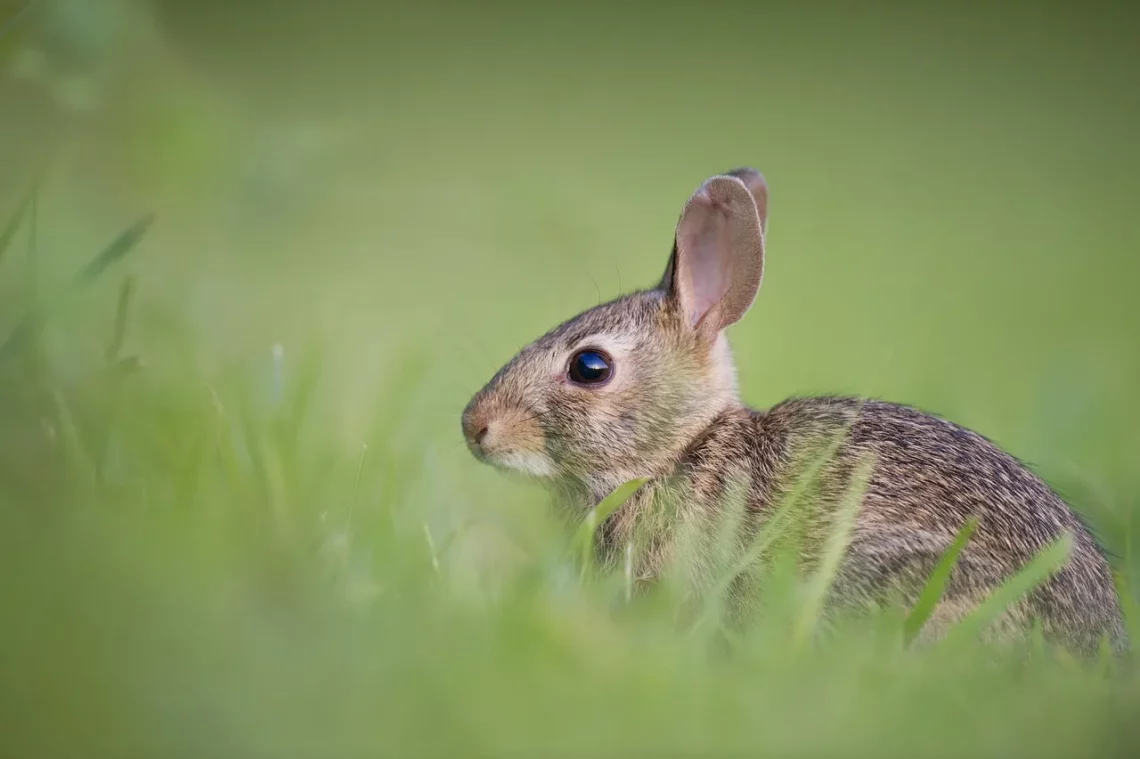
Should Rabbits Eat Bread? Understanding Their Dietary Needs
Rabbits are beloved pets known for their playful personalities and gentle nature. As caring pet owners, it’s essential to provide them with a balanced diet that meets their specific needs. Understanding what rabbits should and shouldn’t eat is crucial for their overall health and well-being. Many people wonder about the suitability of certain foods, including bread, which is a common human food. While it may be tempting to share our snacks with these furry companions, it’s important to remember that rabbits have unique digestive systems that are specifically adapted to process fibrous plant material.
In the wild, rabbits primarily consume grass, hay, and leafy greens, which provide the necessary nutrients and fiber for their health. Their digestive systems are designed to handle a high-fiber diet, which promotes proper gut function and prevents health issues like obesity and gastrointestinal stasis. Therefore, any deviation from their natural diet can lead to complications. This article will delve into the dietary needs of rabbits and explore the implications of feeding them bread, shedding light on what constitutes a healthy diet for these adorable pets.
Understanding a Rabbit’s Digestive System
Rabbits possess a unique digestive system that is distinctly different from that of carnivores or omnivores. Their gastrointestinal tract is specifically adapted to process high-fiber foods, which play a crucial role in their digestion and overall health. The rabbit’s stomach is relatively simple, lacking the complex structure found in other animals, while the intestines are long and specialized for the fermentation of fibrous material.
One of the most critical components of a rabbit’s diet is fiber. Hay, grass, and leafy greens provide the necessary roughage that aids in digestion and promotes healthy gut motility. When rabbits consume fibrous foods, it encourages the growth of beneficial bacteria in their cecum, a specialized part of their digestive tract. This fermentation process produces essential nutrients, such as short-chain fatty acids, which are vital for maintaining their health.
Additionally, a high-fiber diet helps prevent dental issues, which are common in rabbits. Their constantly growing teeth require regular wear, and chewing on fibrous materials aids in this process. Without adequate fiber, rabbits can develop dental problems, leading to pain and difficulty eating.
Moreover, a rabbit’s digestive system operates on a delicate balance. They are hindgut fermenters, meaning that fermentation occurs in the cecum, where food is broken down by bacteria. If rabbits consume foods that are too high in carbohydrates or sugars—like bread—it can disrupt this balance. This disruption can lead to gastrointestinal stasis, a potentially life-threatening condition characterized by a slowdown or halt in gut movement.
In summary, understanding a rabbit’s digestive system is essential for providing a proper diet. A diet that is high in fiber from hay and fresh greens is crucial for their health, while high-carbohydrate foods like bread can be detrimental. As responsible pet owners, it is necessary to prioritize foods that align with their natural dietary requirements.
What Makes Up a Healthy Rabbit Diet?
A well-balanced diet for rabbits consists of several key components that ensure they receive the necessary nutrients for optimal health. The primary staple of a rabbit’s diet should be hay. Timothy hay, meadow hay, or orchard grass are excellent choices, as they are high in fiber and low in protein and calcium. This combination is essential for promoting digestive health and preventing obesity.
Fresh vegetables are another important aspect of a rabbit’s diet. Leafy greens such as romaine lettuce, kale, and cilantro can be introduced to provide additional vitamins and minerals. It’s crucial to introduce new vegetables gradually and in moderation to avoid upsetting their digestive systems. Root vegetables, such as carrots, should be offered sparingly due to their higher sugar content.
In addition to hay and vegetables, a small amount of high-quality rabbit pellets can be included in their diet. Pellets should be primarily made from grass hay and contain minimal fillers or additives. Overfeeding pellets can lead to obesity and other health issues, so it’s essential to measure the appropriate portion based on the rabbit’s weight and activity level.
Fresh water is another vital component of a rabbit’s diet. Always ensure that your rabbit has access to clean, fresh water, as hydration is critical for their overall health. Dehydration can lead to severe health issues, including kidney problems and urinary tract infections.
Treats can also be offered but should be limited to small amounts and chosen carefully. Fruits, such as apples or blueberries, can serve as occasional treats. However, due to their high sugar content, they should be given sparingly.
In conclusion, a healthy rabbit diet consists of a variety of components, emphasizing high-fiber hay, fresh vegetables, a limited amount of pellets, and fresh water. By prioritizing these elements, pet owners can help ensure their rabbits lead happy and healthy lives.
The Risks of Feeding Bread to Rabbits
While bread may seem like a harmless snack, it poses several risks to rabbits due to its composition. Bread is primarily made from wheat flour, which is high in carbohydrates and low in fiber. This imbalance can lead to significant digestive issues for rabbits, whose systems are not equipped to handle such foods.
When rabbits consume bread, the high carbohydrate content can lead to an increase in sugar levels in their bloodstream. This sudden spike can result in gastrointestinal stasis, a serious condition where the digestive system slows down or stops altogether. Symptoms of gastrointestinal stasis can include lethargy, loss of appetite, and abdominal discomfort. If left untreated, this condition can be fatal.
Moreover, bread lacks the essential nutrients that rabbits require for optimal health. Unlike hay and fresh vegetables, which provide fiber, vitamins, and minerals, bread offers little nutritional value. Relying on bread as a food source can lead to nutrient deficiencies, impacting a rabbit’s overall health and well-being.
Another concern is that rabbits may develop a preference for sugary or starchy foods, leading them to refuse their necessary high-fiber diet. This can create a cycle of poor eating habits that can be difficult to break, ultimately jeopardizing their health.
In addition to digestive issues, bread can also contribute to dental problems. Since bread is soft and does not require much chewing, it does not promote the necessary wear on a rabbit’s teeth. Over time, this can lead to overgrown teeth and associated dental pain.
In summary, feeding bread to rabbits is not advisable due to its high carbohydrate content, low nutritional value, and the potential for serious health issues. It is crucial for rabbit owners to prioritize foods that align with their natural dietary needs, focusing on high-fiber options that support their digestive health and overall well-being.
Alternatives to Bread for Rabbits
If you’re looking for alternatives to bread that are safe and nutritious for rabbits, there are plenty of options available that cater to their dietary needs. The key is to focus on high-fiber, low-sugar foods that promote good digestion and overall health.
One of the best alternatives to bread is hay. Timothy hay, orchard grass, and meadow hay are excellent choices that provide the necessary fiber for rabbits. These hays should make up the majority of your rabbit’s diet. Not only do they help with digestion, but they also support dental health by promoting natural chewing behavior.
Fresh vegetables are another fantastic option. Leafy greens such as romaine lettuce, parsley, and cilantro can be introduced into your rabbit’s diet. These vegetables are rich in vitamins and minerals while also providing hydration. Remember to wash and thoroughly dry the greens before offering them to your rabbit to remove any pesticides or contaminants.
If you’re considering treats, opt for small amounts of fruits like apple slices or strawberries, as these can be a delightful addition to their diet. However, due to the sugar content, they should only be given in moderation. You can also consider offering small pieces of safe vegetables like bell peppers or cucumber as an occasional treat.
In addition to these options, there are commercially available rabbit treats made specifically for their dietary needs. These treats usually contain hay, dried herbs, or vegetables and can be a good way to diversify their diet while keeping it safe. Always check the ingredient list to ensure that the treats do not contain harmful additives.
Finally, ensure that your rabbit has access to fresh, clean water at all times. Hydration is crucial for their health and helps with digestion.
In conclusion, there are numerous safe and nutritious alternatives to bread for rabbits. By providing a varied diet focused on high-fiber hays, fresh vegetables, and occasional treats, you can support your rabbit’s health and happiness.
**Disclaimer**: This article does not constitute medical advice. If you have health concerns about your rabbit or need specific dietary recommendations, please consult a veterinarian. Always prioritize professional guidance regarding your pet’s health and well-being.




